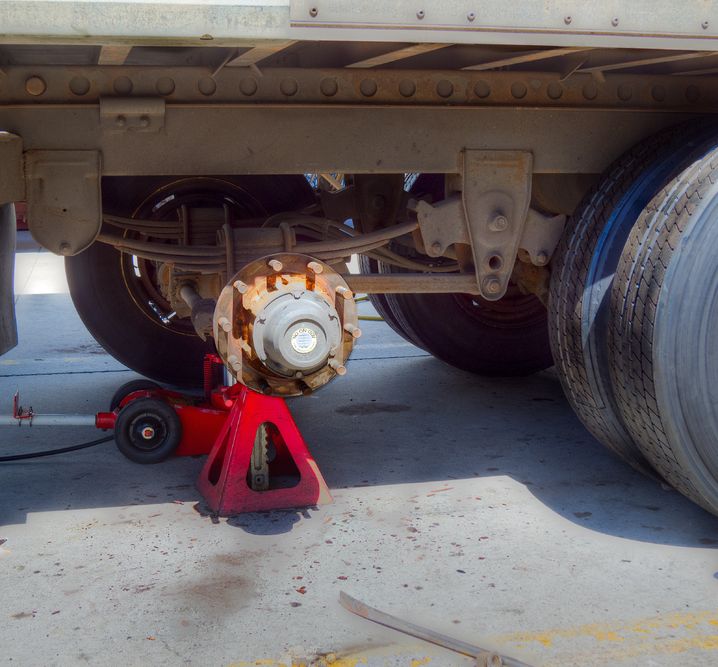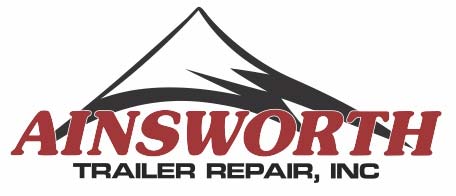 Is your trailer brake system in disrepair? If so, you could be in for a nasty surprise. Trailer brakes are a fail-safe for loads that exceed your tow vehicle braking capacity. This ‘extra’ set of brakes also improves stability in slowing/stopping, reducing the risk of jackknifing in emergency-stop situations.
Is your trailer brake system in disrepair? If so, you could be in for a nasty surprise. Trailer brakes are a fail-safe for loads that exceed your tow vehicle braking capacity. This ‘extra’ set of brakes also improves stability in slowing/stopping, reducing the risk of jackknifing in emergency-stop situations.
Trailer Brakes Require the Same Maintenance as Passenger/Tow Vehicles
Not much different in function, trailer brakes are at-risk of all the same maintenance issues as passenger and tow vehicles, not to mention additional woes in those toting water-friendly vehicles like boats and jet-skis. In these haulers, water contamination, corrosion and rust, as well as failure to clean, repack, adjust trailer bearings regularly, can lead to the early demise of your braking system, putting you and your cargo at-risk of a serious accident.
Are Your Trailer Brakes Up to Par? Trailer Brake Inspection
Routine trailer brake inspection will ensure brakes are fully functional, releasing when your hauler is in-motion, and applying evenly and properly when braking. Have your brakes professionally inspected annually, at a minimum. Between inspections, remain on the lookout for….
- The condition of drums, shoes, springs & hardware.
Thin, worn shoes and drums and badly corroded items should be rapidly replaced. - Thin, worn rotors (disc brakes).
On disc brake systems, replace thin, warped, or cracked rotors immediately. - Wheel cylinder, master cylinder & brake line fluid leaks (hydraulic systems).
Including inspecting the condition of brake fluid for rust, sediment, and water infiltration. Leaking systems should be bled to remove air in lines, and fluids regularly replaced to inhibit the internal corrosion of brake system components. - The condition of wiring, connectors, magnets, and batteries on electrical systems.
Routinely check the main connector, ensuring the emergency battery is securely mounted and fully-charged. - Bearing issues affecting brake performance on boat trailers.
Worn wheel bearings leaking grease can contaminate brake linings, negatively impacting performance. Brakes should be inspected when wheel bearings are serviced for damage/replacement needs. - Operational issues:
- Surge/Hydraulic System
Brakes should apply fully and evenly, barring fluid leaks/air in lines. When wheels are raised, they should spin freely by hand. Looseness/roughness in the spin indicate wheel bearing issues. - Electric Systems
Unplugging the trailer and energizing the system with a 12-volt battery, or activating the emergency stop system, should result in brake application. Failure to apply indicates wiring, breaker/fuse, ground or magnet issues.
- Surge/Hydraulic System
- Adjustment issues.
Trailer brakes should be adjusted based on driving conditions, trailer load, and driver preferences. Keep in mind when towing, heavier loads require more braking force. Loose surfaces/wet roads require less force to prevent wheels from locking. Brakes should be driven a short distance before adjustment, and warmed under normal conditions: ¼ mile and a series of stops at 25-45 mph is recommended. Adjustable delay settings should likewise be fine-tuned so the tow vehicle/trailer work in harmony when brakes are in-use. If brakes don’t work under operating conditions, but work fine in the service bay, this indicates issues with the vehicle/brake controller.
Don’t risk your ride. Put a stop to brake problems with regular maintenance and inspection. Contact Ainsworth Trailer Repair and schedule an ‘express lane’ brake service today.



